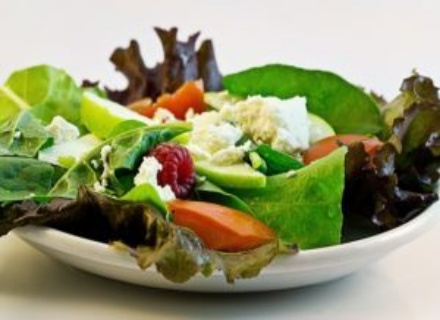Special Diets and Meals for Different Categories of People
There are different types of special diet for different set of people. This post seeks to highlight those special diets for vegetarians, diets for invalid and convalescent, for those who loose weight and special diets for those with fever conditions.

Vegetarian Diets
Vegetarians are those people who do not eat animal flesh or fish. There are three different types of vegetarians viz:
Lacto Vegetarians
These are people who do not eat the flesh of animals, fish or poultry but take milk products and eggs in addition to vegetables which they consume in large amounts.
Strict Vegetarians
These people are also known as vegans. They do not eat the flesh of animals, poultry and fish as well as the animal or dairy products. They eat only vegetable i.e. plant foods. While it is easy to plan a balanced diet for the lacto vegetarian because of the inclusion of eggs, milk and milk products respectively in their diets, it is not easy to plan a balanced diet for a vegan. Since vegans depend solely on plant foods, their diets may lack some essential amino acids and vitamins which can only be obtained from animal foods.
However, through a careful planning and judicious combination of different plant foods, a fairly balanced diet can be prepared. For example, a combination of cereals, legumes and leafy vegetables will produce a balanced diet. Vegetarians should also consume adequate fresh fruits. For the lacto vegetarians the consumption of milk products plus eggs respectively will make their diets balanced.
Diets For Invalids And The Convalescent
An invalid is a sick person that is confined to the bed while a convalescent is someone recovering or has just recovered from an illness. In both cases, they have very weak intestines.
Therefore their diets must be easily digestible. They need plenty of protein, vitamins and minerals as well as energy foods. Though fat is a highly concentrated form of energy, it is not easily digested and therefore should not be given to the invalid or to the convalescent.
Appropriate methods of cooking that will make the food easily digestible must be used e.g. stewing, steaming and boiling.
Here are some suggested meals for invalids and convalescents.
- Milk flavoured with ovaltine or any beverage.
- Egg lightly boiled.
- Bean pudding with pap
- Soups e.g. meat, fish or vegetable.
- Mashed yam/potato/cocoyam/cassava.
- Milk pudding including custard.
- Fresh fruits or fruit juice.
Special Diets In Fever And Infection
A fever is a condition in which the body temperature rises above normal. It is usually a symptom of other diseases which can be due to infection.
During a fever or an infection, the appetite is always depressed and there is a possibility of the body becoming dehydrated, Thus at the onset of a fever or an infection, a clear fluid diet should be provided. This can be tea, coffee, and fat-free broth, or ginger ale, fruit juices and water gruels could be given.
Small amounts of fluid should be offered every hour or two to the patient. The primary purpose of this diet for a fever patient is to relieve thirst and help maintain the water balance. Broth provides some sodium, and fruit juices supply potassium.
Carbonated beverages, sugar and fruit juices, when used, furnish a small amount of carbohydrate to supply energy. This is then followed by a full fluid special diet which consists of liquids and foods that liquefy at body temperature.
The food can be in a puree or mashed form to ease the rate of digestion. At this stage, energy foods in the form of carbohydrates should be given so as to supply the needed energy. Generous amounts of vegetables and fruits should be consumed to furnish the needed vitamins and mineral elements.
Also meat and fish cooked by the appropriate method should be given. As a situation improves however, the normal diet can be introduced.
Special Diets For Overweight
An overweight person is one whose weight is above normal. The extra weight makes demand upon his heart, his blood circulation, his back, and the whole of the skeleton.
It is not surprising therefore that overweight people often have heart disease and hypertension, diabetes and other chronic diseases. The need for overweight individual to shed the extra weight can be due to excessive fat accumulation in the adipose tissue.
Gaining or losing weight is simply a question of balancing food calories with the body’s need for calories. Therefore, the diet for overweight people should be low in calories. Food items like fat and carbohydrates should be reduced drastically, while a higher protein should be consumed.
This is desirable because it helps to correct the greater losses of muscle tissue that occur during reducing. Generous amounts of fresh vegetables and fruits should be consumed to supply the needed vitamins and minerals.
Meals of a low calorie diet should be attractive and palatable. Meats, fish and poultry should be free from fat and should be prepared by boiling, roasting or stewing. The low calorie diet should be accompanied with regular exercise for it to be effective.